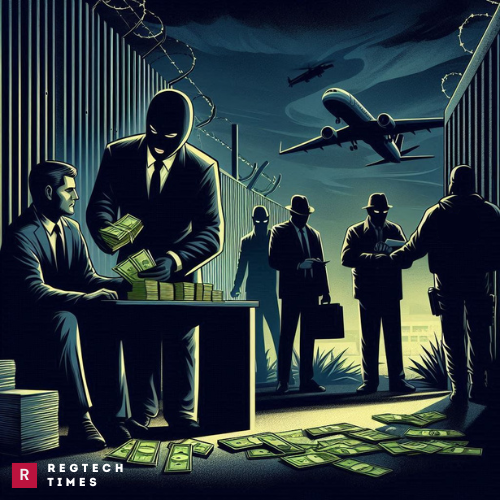A group of criminals was caught running a violent operation to take over an entire business industry near the U.S.-Mexico border. They forced others in the business to follow their rules, pay high fees, and eliminate competition through threats and violence. Their goal was to completely control the market and make enormous profits at the expense of small business owners and customers.
The U.S. Department of Justice announced that eight people have pleaded guilty to this illegal scheme. These individuals worked together to control the transmigrante forwarding agency industry in Los Indios, Texas. These businesses help transport used cars and goods from the U.S. to Mexico for resale in Central America. By using threats and strict rules, the criminals ensured that no one outside their group could operate freely.
The conspirators set up a system called the “Pool.” This organization collected money from businesses and divided profits among its members. Every agency that wanted to continue operating had to pay into the Pool. If they refused, they faced violent consequences. To make sure no one broke the rules, the criminals monitored prices, tracked payments, and kept a close watch on competitors.
Shocking Cybercrime Exchange: U.S. Returns Vinnik in High-Stakes Prisoner Swap
The Crimes: Extortion, Violence, and Money Laundering
The criminals were not only controlling the market, but they also forced businesses to pay extra money through threats. They demanded a fee called a “piso” for every transaction in the industry. On top of that, they issued “fines” to businesses that didn’t follow their strict rules.
To enforce their power, the criminals used threats, intimidation, and violence. They scared business owners into paying large amounts of money. If someone refused, they were met with severe consequences. The leader of this operation personally collected at least $9.5 million in extortion payments.
Victims of this scheme were left with no choice but to comply. Businesses that didn’t follow the group’s demands were harassed, their property vandalized, and in some cases, their owners physically assaulted. Fear spread throughout the industry as more people gave in to the criminal group’s demands to avoid violent retaliation.
But the criminals didn’t just keep the money—they tried to hide it. They laundered the money by moving it through different bank accounts to make it look legal. Some of them even deposited large amounts of cash into personal accounts to avoid getting caught.
One of the criminals also structured bank transactions to avoid suspicion. By breaking large deposits into smaller amounts, they attempted to dodge federal banking regulations.
OFAC Sanctions 49 Crypto Addresses Linked to Nemesis Darknet Crimes
Punishment for Their Crimes
Now that these criminals have pleaded guilty, they are facing serious punishments. U.S. law states that fixing prices, controlling the market, and monopolizing businesses can lead to up to 10 years in prison and fines of up to $1 million per person. Using threats and extortion to control businesses is even worse—it can result in up to 20 years in prison and fines of $250,000 per person. Those involved in money laundering could also face 20 years in prison and a fine of $500,000.
One of the leaders of this criminal network agreed to give up several properties and $375,000 in seized cash. Other criminals involved have also agreed to pay fines.
However, not all of the accused have been caught. Three individuals are still on the run, and law enforcement is working to track them down. Authorities are urging the public to report any information that may help capture these fugitives.
The investigation is being handled by multiple federal agencies, including the FBI, Homeland Security Investigations, and the Department of Justice’s Antitrust Division. These agencies are determined to hold those responsible for their crimes.
This case serves as a warning that price fixing, extortion, and market monopolization are serious crimes. Authorities will not tolerate businesses being controlled through fear, and justice will be served to those who break the law.


